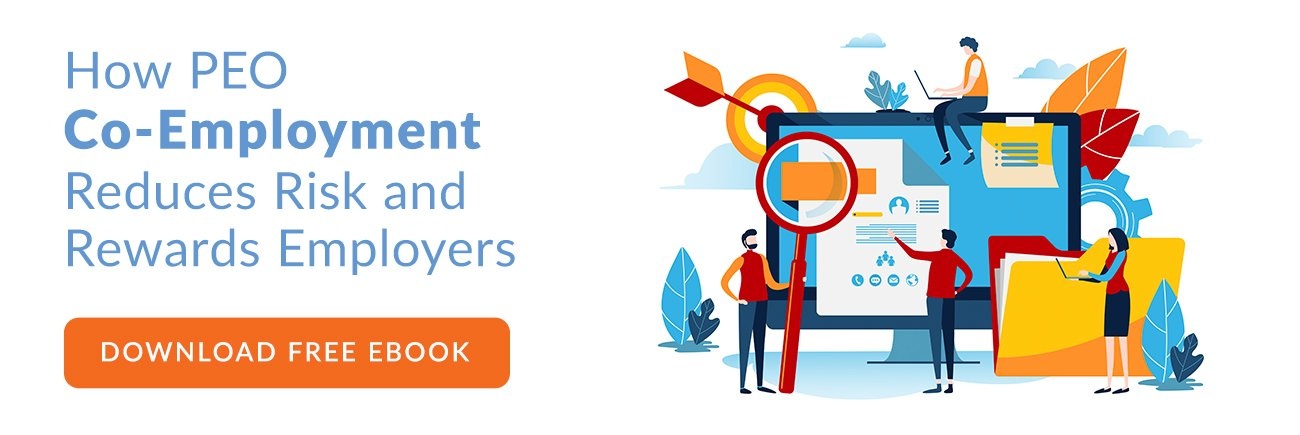Are you outsourcing to a payroll processor? Many companies are, but sadly you are not getting your money’s worth. Getting a good ROI from payroll processing depends on choosing the right service and then making sure that the partner you choose is the best.
Is Payroll Outsourcing a Good Idea?
For many business owners and small HR departments, outsourcing payroll seems like a no-brainer. It’s tedious, meticulous work that has to be done absolutely right yet doesn’t necessarily need an in-depth knowledge of your company.
However, whether it is a good idea depends on what we call the “3 Cs of HR Outsourcing.” These are:
- Comprehensiveness of Services. The more administrative burdens you can sign over to the outsourcing partner, the better. A good partner will not just take care of payroll (including filing those pesky taxes), but also other routine paperwork such as benefits administration, the more mundane aspects of onboarding, etc. This saves you a lot more time that can be spent on more important things.
- Cost Savings. The tangible cost savings you make are crucial to maximizing ROI. You can establish this in part by recording the amount of time your HR team spends on mundane tasks and then multiply it by their salary and compare it to the cost of outsourcing. With payroll processing, this comparison is not always favorable, but with more comprehensive services such as a professional employer organization, it can add up to significant savings. Another way a PEO can save you money is by allowing you to get a better health plan for a lower cost.
- Compliance Needs. If you are lucky, you may have an HR expert who is really solid on compliance. However, keeping up with it can be dangerously close to a full-time job, especially if you have job sites or remote workers in multiple states. Having an inexperienced person do payroll is very common in small companies...often it’s the owner, or the receptionist, or the office manager. These people are more likely to make a mistake that can result in a fine, a lawsuit, and/or the departure of an employee.
So, with these in mind, let’s look at your payroll outsourcing options:
Payroll Processor
There are specialist payroll processing companies everywhere. These companies take your payroll data, process paychecks, and tell you what taxes to pay. They can be helpful if your in-house team doesn’t have anyone good at payroll and many mistakes are being made.
However, there are no tangible cost savings. The only thing saved is your HR team’s (or other employees’) time. While this can be very important, it is also limited. They also can’t help with other compliance issues, only with payroll-related matters such as making sure overtime is calculated correctly.
Administrative Services Organization (ASO)
An administrative service organization is sometimes called “administrative services only.” This should tell you what they do. They handle your payroll processing, benefits administration, and compliance. ASOs can do things like make sure you post all the required OSHA signs.
This is obviously a lot better than a payroll processor alone. Your team saves a lot more time by not having to worry about all of these various administrative burdens.
Professional Employer Organization (PEO)
Then there’s the final option, which is the most comprehensive. This is partnering with a PEO. A PEO can do everything for you that an ASO can do.
However, they can also offer more, and the reason is something called “co-employment.” With co-employment, the PEO becomes employer of record. This doesn’t mean they take over managing your employees, but it does mean that they can:
- Add your employees to their master health benefits plan. This allows you to offer better benefits at a much lower price. This helps attract talent and reduce absenteeism as well as providing legitimate cost savings.
- Possibly add your employees to their workers’ comp plan, giving even more savings.
- Share liability. If your payroll processor or ASO makes a mistake, the results fall squarely on you. Meanwhile, a PEO shares liability, which means they have a good incentive to get things right.
- Remit taxes. A payroll processor or ASO can tell you what to send for payroll taxes. A PEO will simply file your taxes for you, removing yet another administrative burden.
The average ROI of a PEO is 27.2%, higher than any other HR outsourcing service. But you need more than that. You need a best-in-class PEO.
What do Best-in-Class PEOs Offer?
Not all PEOs are made equal. If you choose a best-in-class, local PEO you can get even more savings. While nearly all enable access to their master benefits plan, the best PEOs will also:
- Add your employees to their workers’ comp plan. Workers’ comp is mandatory and the premiums can be a significant cost. For a newer, smaller company a single accident can send premiums soaring. You also have to pay them in advance as a lump sum. A PEO can allow you to pay workers’ comp as you go on a monthly basis. You also benefit from accessing their experience modifier rate.
- Help with the administration of 401(k) and other retirement plans. This means that you spend less on administrative fees.
- Assist with all kinds of other matters, which might include safety training, return to work plans to reduce workers’ comp costs further, helping you design a wellness plan, etc.
This means you might get an even higher ROI from these top-flight PEOs.
When you follow the “3 Cs of HR Outsourcing,” your choice becomes clear. You need a best-in-class PEO to support your business, reduce your administrative burdens, and save on costs.



